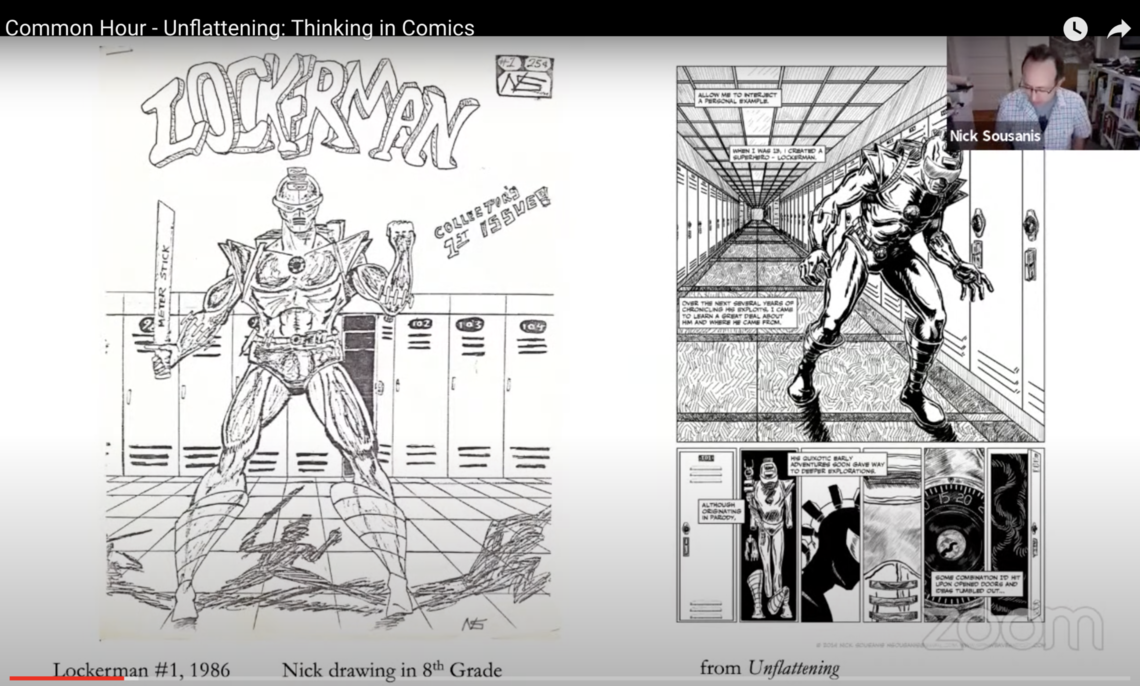

While the book contains a collection of written notes designed to provide more information about the “backstory” and “influences behind the words and drawings” (p. 155- 170), the visual text (p. 1-152) works pretty much as a stand-alone piece. As a matter of fact, it is known today as the first doctoral dissertation entirely written in comics format. Before its publication by Harvard University Press, Unflattening existed as Nick Sousanis’ doctoral dissertation, which he defended at Columbia University. Unflattening is all this and more: it draws from art, science, philosophy, and mythology to offer us a linguistic and visual reflection on knowledge, discourse, and meaning-making processes.ĢWritten entirely in comics form, Sousanis’ book is an invitation to explore the intersections between form and content, hereby expanding our definition of literacy and scholarly inquiry. Others, like Douglas Wolk in the New York Times, considered Unflattening to be “a genuine oddity, a philosophical treatise in comics form” ( New York Times Book Review, May 2015). There is an upswell of comics that deal with trauma in people’s life, often because words sometimes can’t address what people are experiencing.1Scott McCloud, the famous American comic artist and theorist best known for his pivotal work on Understanding Comics (1993), described Unflattening as “a complex, beautiful, delirious meditation”. – Stitches by David Small (memoir of growing up in Detroit) Jimmy Corrigan, the Smartest Kid on Earth is his most recent It’s hard because they’re sad things, but it’s worth reading.

Who are you reading, asks an audience member. He might create some scaffolding sketches to lay out the overall structure of the the panel, fill in detail, and then move back and forth to adjust detail and overview as it proceeds. He might start with the idea that a panel needs to communicate something about nonlinear thinking. I agree 🙂Īn audience member asks, “what’s your process?” Nick responds that his works are philosophical excursions. Nick answers that he hasn’t found any examples of this, and that we should try it. Does Nick know of any examples of ways that people have a conversation between people via comics? Words are great because we have strategies like summarisation and argumentation that allow us to talk to each other and collaborate to improve an idea or make a decision. I ask Nick about the possibility of dialectic in comics.


 0 kommentar(er)
0 kommentar(er)
